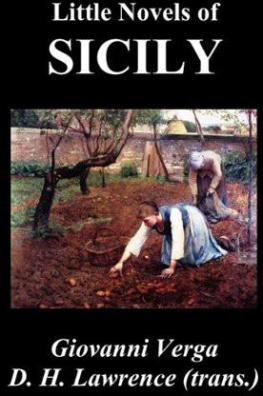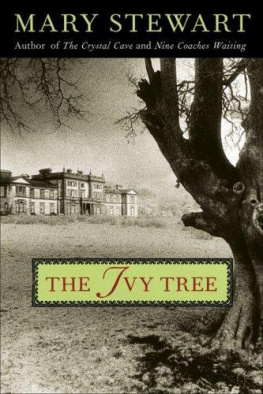Giovanni Verga - The House by the Medlar Tree
Here you can read online Giovanni Verga - The House by the Medlar Tree full text of the book (entire story) in english for free. Download pdf and epub, get meaning, cover and reviews about this ebook. City: New York, year: 0, publisher: Harper & Brothers, genre: Art. Description of the work, (preface) as well as reviews are available. Best literature library LitArk.com created for fans of good reading and offers a wide selection of genres:
Romance novel
Science fiction
Adventure
Detective
Science
History
Home and family
Prose
Art
Politics
Computer
Non-fiction
Religion
Business
Children
Humor
Choose a favorite category and find really read worthwhile books. Enjoy immersion in the world of imagination, feel the emotions of the characters or learn something new for yourself, make an fascinating discovery.
- Book:The House by the Medlar Tree
- Author:
- Publisher:Harper & Brothers
- Genre:
- Year:0
- City:New York
- Rating:5 / 5
- Favourites:Add to favourites
- Your mark:
- 100
- 1
- 2
- 3
- 4
- 5
The House by the Medlar Tree: summary, description and annotation
We offer to read an annotation, description, summary or preface (depends on what the author of the book "The House by the Medlar Tree" wrote himself). If you haven't found the necessary information about the book — write in the comments, we will try to find it.
The House by the Medlar Tree — read online for free the complete book (whole text) full work
Below is the text of the book, divided by pages. System saving the place of the last page read, allows you to conveniently read the book "The House by the Medlar Tree" online for free, without having to search again every time where you left off. Put a bookmark, and you can go to the page where you finished reading at any time.
Font size:
Interval:
Bookmark:

This book made available by the Internet Archive.



INTRODUCTION.
Any one who loves simplicity or respects sincerity, any one who feels the tie binding us all together in the helplessness of our common human life, and running from the lowliest as well as the highest to the Mystery immeasurably above the whole earth, must find a rare and tender pleasure in this simple story of an Italian fishing village. I cannot promise that it will interest any other sort of readers, but I do not believe that any other sort are worth interesting; and so I can praise Signor Verga's book without reserve as one of the most perfect pieces of literature that I know.
When we talk of the great modern movement towards reality we speak without the documents if we leave this book out of the count, for I can think of no other novel in which the facts have been more faithfully reproduced, or with a profounder regard for the poetry that resides in facts and resides no
where else. Signer Verga began long ago, in his Vita dei Campi (^'lAi^ of the Fields") to give proof of his fitness to live in our time; and after some excursions in the region of French naturalism, he here returns to the original sources of his inspiration, and offers us a masterpiece of the finest realism.
He is, I believe, a Sicilian, of that meridional race among whom the Italian language first took form, and who in these latest days have done some of the best things in Italian literature. It is of the far South that he writes, and of people whose passions are elemental and whose natures are simple. The characters, therefore, are types of good and of evil, of good and of generosity, of truth and of falsehood. They are not the less personal for this reason, and the life which they embody is none the less veritable. It will be well for the reader who comes to this book with the usual prejudices against the Southern Italians to know that such souls as Padron 'Ntoni and Maruzza la Longa, with their impassioned conceptions of honor and duty, exist among them ; and that such love idyls as that of Mena and Alfio, so sweet, so pure, and the happier but not less charming every-day romance of Alessio and Nunziata, are passages of a life supposed wholly
benighted and degraded. This poet, as I must call the author, does again the highest office of poetry, in making us intimate with the hearts of men of another faith, race, and condition, and teaching us how like ourselves they are in all that is truest in them. Padron 'Ntoni and La Longa, Luca, Mena, Alfio, Nunziata,Alessio, if harshlier named, might pass for New England types, which we boast the product of Puritanism, but which are really the product of conscience and order. The children of disorder who move through the storythe selfish, the vicious, the greedy, like Don Sylvestro, and La Vespa, and Goosefoot, and Dumb-bell, or the merely weak, like poor 'Ntoni Malavoglia are not so different from our own images either, when seen in this clear glass, which falsi' ifies and distorts nothing.
Few tales, I think, are more moving, more full of heartbreak than this, for few are so honest. By this I mean that the effect in it is precisely that which the author aimed at. He meant to let us see just what manner of men and women went to make up the life of a little Italian town of the present day, and he meant to let the people show themselves with the least possible explanation or comment from him. The transaction of the story is in the
highest degree dramatic; but events follow one another with the even sequence of hours on the clock. You are not prepared to value them beforehand; they are not advertised to tempt your curiosity like feats promised at the circus, in the fashion of the feebler novels; often it is in the retrospect that you recognize their importance and perceive their full significance. In this most subtly artistic management of his material the author is most a master, and almost more than any other he has the rare gift of trusting the intelligence of his reader. He seems to have no more sense of authority or supremacy concerning the personages than any one of them would have in telling the story, and he has as completely freed himself from literosity as the most unlettered among them. Under his faithful touch life seems mainly sad in Trezza, because life is mainly sad everywhere, and because men there have not yet adjusted themselves to the only terms which can render life tolerable anywhere. They are still rivals, traitors, enemies, and have not learned that in the vast orphanage of nature they have no resource but love and union among themselves and submission to the unfathomable wisdom which was before they were. Yet seen aright this picture of a
INTRODUCTION. VU
little bit of the world, very common and low down and far off, has a consolation which no one need miss. There, as in every part of the world, and in the whole world, goodness brings not pleasure, not happiness, but it brings peace and rest to the soul, and lightens all burdens; the trial and the sorrow go on for good and evil alike; only, those who choose the evil have no peace.
W. D. H DWELLS.
THE HOUSE BY THE MEDLAR-TREE.
I.
Once the Malavoglia were as numerous as the stones on the old road to Trezza; there were some even at Ognino and at Aci Castello, and good and brave seafaring folk, quite the opposite of what they might appear to be from their nickname of the Ill-wills, as is but right. In fact, in the parish books they were called Toscani; but that meant nothing, because, since the world was a world, at Ognino, at Trezza, and at Aci Castello they had been known as Malavoglia, from father to son, who had always had boats on the water and tiles in the sun. Now at Trezza there remained only Padron 'Ntoni and his family, who owned the Prov-videnza, which was anchored in the sand below the washing-tank by the side of Uncle Cola's Concetia and Padron Fortunato Cipolla's bark. The tempests, which had scattered all the other Malavoglia to the four winds, had passed over the house by the medlar-tree and the boat anchored under the
tank without doing any great damage; and Padron 'Ntoni, to explain the miracle, used to say, showing his closed fist, a fist which looked as if it were made of walnut wood, " To pull a good oar the five fingers must help one another." He also said, " Men are like the fingers of the handthe thumb must be the thumb, and the little finger the little finger."
And Padron 'Ntoni's little family was really disposed like the fingers of a hand. First, he came the thumbwho ordered the fasts and the feasts in the house ; then Bastian, his son, called Bastianazzo because he was as big and as grand as the Saint Christopher which was painted over the arch of the fish-market in town; and big and grand as he was, he went right about at the word of command, and wouldn't have blown his nose unless his father had told him to do it. So he took to wife La Longa when his father said to him " Take her!" Then came La Longa, a little woman who attended to her weaving, her salting of anchovies, and her babies, as a good house-keeper should do; last, the grandchildren in the order of their age'Ntoni, the eldest, a big fellow of twenty, who was always getting cuffs from his grandfather, and then kicks a little farther down if the cuffs had been heavy enough to disturb his equilibrium ; Luca, " who had more sense than the big one," the grandfather said; Mena (Filo-mena), surnamed Sant'Agata, because she was always at the loom, and the proverb goes," Woman at the loom, hen in the coop, and mullet in January/'
Font size:
Interval:
Bookmark:
Similar books «The House by the Medlar Tree»
Look at similar books to The House by the Medlar Tree. We have selected literature similar in name and meaning in the hope of providing readers with more options to find new, interesting, not yet read works.
Discussion, reviews of the book The House by the Medlar Tree and just readers' own opinions. Leave your comments, write what you think about the work, its meaning or the main characters. Specify what exactly you liked and what you didn't like, and why you think so.








